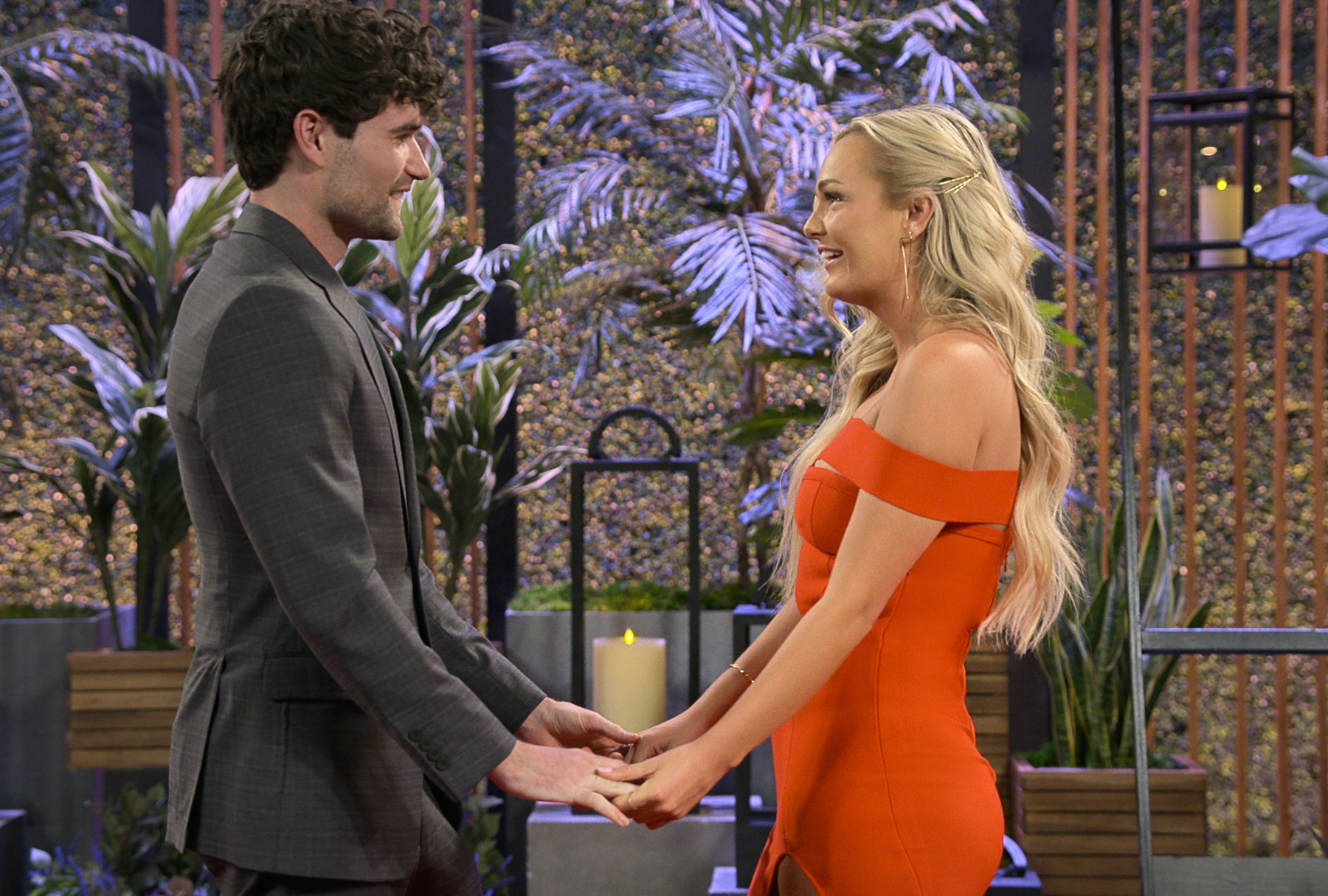Can two people really fall in love, sight unseen? Testing the truism that love is blind is the premise of the eponymous Netflix original show, which has entered its fourth season — and which my husband, who is a licensed therapist, and I have been watching eagerly. Reality TV is, at its worst, lurid; at its best, it teaches us something about human nature and psychology.
For the unfamiliar, the show “Love is Blind” is a so-called “social experiment” where single men and women meet, date, and get engaged — all before meeting in person. Their dates take place in small rooms known as “pods,” which have a sparkling blue wall that is shared with another pod. After 10 days of “pod dating,” within which contestants can hear but not see each other, the contestants are expected to propose to each other. Only then do they get to see each other in person for the very first time. It doesn’t stop there: Once they meet in person, the new couples go on a romantic getaway together to see if there’s a physical connection. If there is, they live together, and then plan their wedding, all within the span of weeks.
This season turned out to be just as addictive and gossip-generating as the previous. As I watched, I paused to chat about the drama. Will it be Micah and Kwame, or Micah and Paul? Will Zack choose Bliss or Irina? Tiffany and Brett are clearly connected from the start, a solid match — but as we’ve seen before, all’s not fair in “Love is Blind.”
To me, the most bewildering part of the show is that moment when contestants get down on one knee and proposes to a person they’ve never before seen in real life. It’s not the concept itself that is particularly novel, but rather the emotions — the hyperventilating and tears shared between two people, neither of whom have seen each other yet, still visually separated by the glowing wall. I think back to when my own husband proposed to me, after three years of dating; I was elated, but didn’t shed a tear. And if he’d proposed after a mere 20 days, I certainly wouldn’t have said yes — nor would I have had the same reaction as these contestants.
Are these people really so moved by these proposals? As the show’s hosts, Nick and Vanessa Lachey, say multiple times throughout the show, “Is love really blind? Can you fall in love sight unseen?”
“I think so,” says my husband, Ken Stamper, a couples therapist who often sits next to me on the couch as I think these thoughts out loud. “But it can only work if you’re securely attached.”
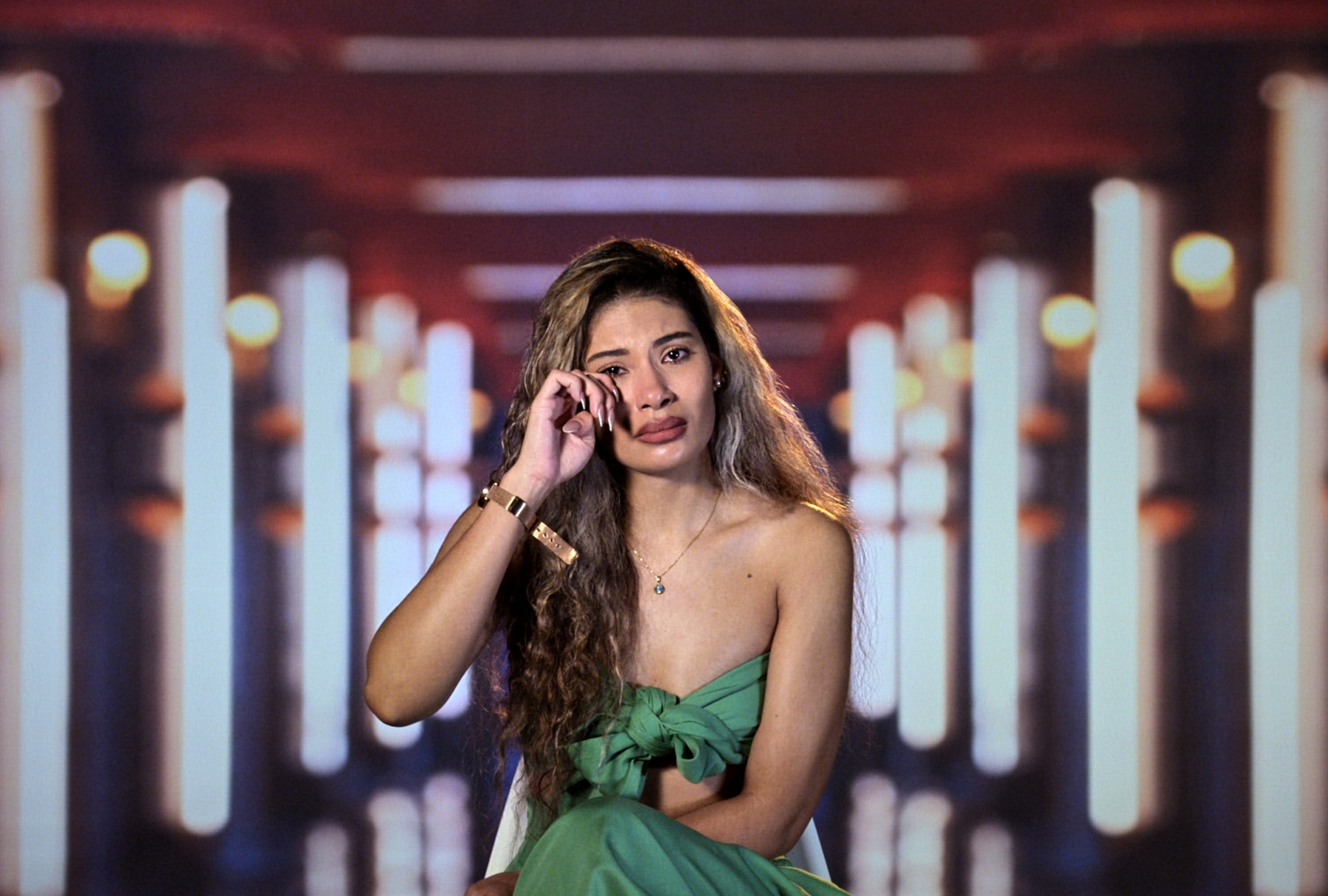 Jackie on “Love Is Blind” (Netflix)Attachment theory suggests that a secure attachment style enables individuals to have healthy, loving relationships without fear of intimacy or panic when their partner needs space. However, an anxious attachment style can lead to a deep fear of abandonment — while an avoidant attachment style can lead to a deep fear of intimacy and a pattern of distancing from a partner when the relationship becomes too close.
Jackie on “Love Is Blind” (Netflix)Attachment theory suggests that a secure attachment style enables individuals to have healthy, loving relationships without fear of intimacy or panic when their partner needs space. However, an anxious attachment style can lead to a deep fear of abandonment — while an avoidant attachment style can lead to a deep fear of intimacy and a pattern of distancing from a partner when the relationship becomes too close.
“Avoidantly attached people frequently come from traumatic family backgrounds,” he says.
“Not promoting it, but plenty of people have fallen in love with someone incarcerated, without photos, and writing them the entire time they are imprisoned.”
Take season four contestant Jackie Bonds, who initially seemed to have a good relationship with her boo Marshall Glaze. Sure, red flags started to pop up in Mexico when she had a breakdown one night, but she then shared on Instagram that it was because she felt guilty for enjoying herself when her family needed her back home.
“I come home every weekend to make sure I pay his bills, clean the house, and make sure my father and mother are good,” Bonds said in an Instagram post. “I felt guilty being happy and enjoying my time in Mexico because my family deserves time away.” My husband the therapist, who clarified that he would never diagnose someone without seeing them in his office, said it sounds like Jackie could be a “parentified child.”
“She may not have been allowed to have personal space in her own world, which would make it difficult to tolerate closeness and intimacy with her own partners,” Stamper says.
Clearly, we see that with Marshall, who has been vulnerable and honest with her from the start. My husband-therapist added that Jackie is likely avoidantly attached.
Then what about Kwame Appiah? It seems like sometimes he is totally into Chelsea Griffin, who has been the Marshall in their relationship. But his initial flirting with Micah Lussier, whom he seriously considered proposing to in the pods, has made viewers like myself second-guess his intentions.
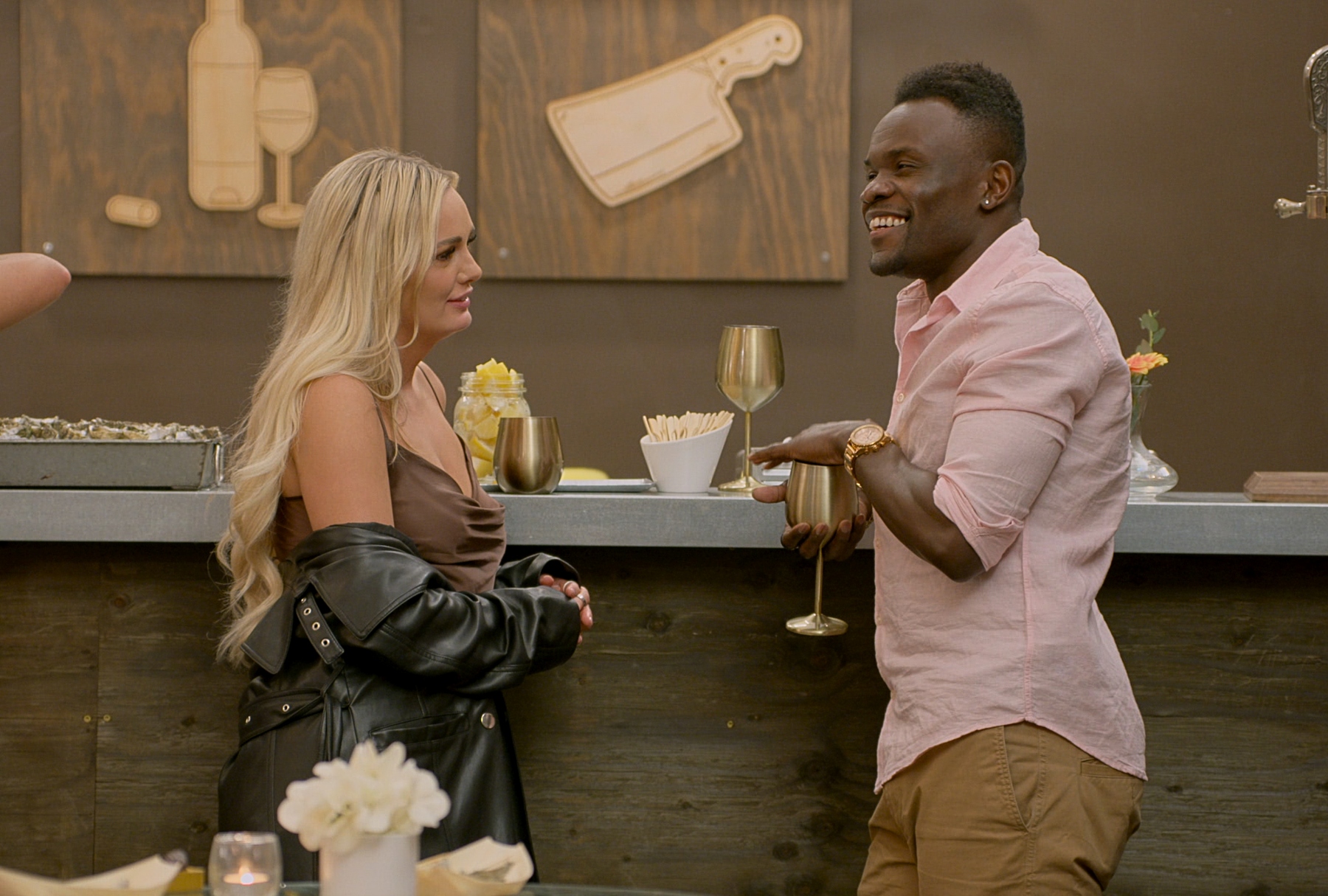 Micah and Kwame chat at a party on “Love Is Blind” (Netflix)Kwame has shared a bit about his background. He immigrated to the U.S. from Ghana, and lives in Portland. He’s repeatedly shared that he’s hesitant to make a move from Portland to Seattle and merge his life with Chelsea’s, and that he feels he’s making more of a sacrifice than she is in this “experiment.”
Micah and Kwame chat at a party on “Love Is Blind” (Netflix)Kwame has shared a bit about his background. He immigrated to the U.S. from Ghana, and lives in Portland. He’s repeatedly shared that he’s hesitant to make a move from Portland to Seattle and merge his life with Chelsea’s, and that he feels he’s making more of a sacrifice than she is in this “experiment.”
My husband says he’ll be surprised if Kwame says “I do” at the altar.
Want more health and science stories in your inbox? Subscribe to Salon’s weekly newsletter The Vulgar Scientist.
“He’s successful and driven but seems like kind of a Peter Pan,” my husband says, implying he is resistant to growing up. “He seems to have trouble with Chelsea being so enthusiastic with closeness, and is treating their relationship like an obstacle to be conquered.”
Plus, Kwame’s mom does not approve of him marrying someone he barely knows.
“There’s likely a cultural aspect to this that I’m not privy to,” my (white) husband says. “And it’s tough going against your mom under any circumstances.”
While Zack Goytowski and Bliss Poureetezadi seem solid now, my husband called it from the beginning when he said that Zack initially chose Irina for the wrong reasons, and Irina ended up not being physically attracted to her now ex-fiancé — whom she described as feeling “ick” for.
From the get-go, my husband also could tell that Brett Brown and Tiffany Pennywell were likely to succeed in their coupling. “They clearly enjoy being with each other. They have similar values. They are older and maybe a little more mature than their podmates,” he opined.
Perhaps, then, there is some truth to the axiom in the show’s title. Can this “experiment” in blind love work, at least with certain couples? I decided to reach out to another expert beyond the one sitting on my own couch.
“Absolutely,” Carla Marie Manly, a clinical psychologist and author of “Joy From Fear,” told me. “You fall in love with somebody by the way they treat you, by the way they talk to you, by their interest in you — all of those parts that are a natural part of the dating process.”
However, Manly said, love is contingent on what a person values — and if a person values physical attraction and sexual chemistry, then physical attraction might matter more to some than others.
“You fall in love with somebody by the way they treat you, by the way they talk to you.”
Manly added that the show is designed to uniquely bond the contestants, hence their ability to seemingly fall in love so quickly. On the show, Bliss’ father — who essentially pinned the couple as future members of the divorcee club — pointed out that it’s a bit absurd to marry someone after 20 days.
“Any time people go through a deep emotional experience — whether it’s through trauma, whether it’s through something like filming a television show, whether it’s through an intense hospitalization experience — those situations can really be deeply bonding,” Manly said.
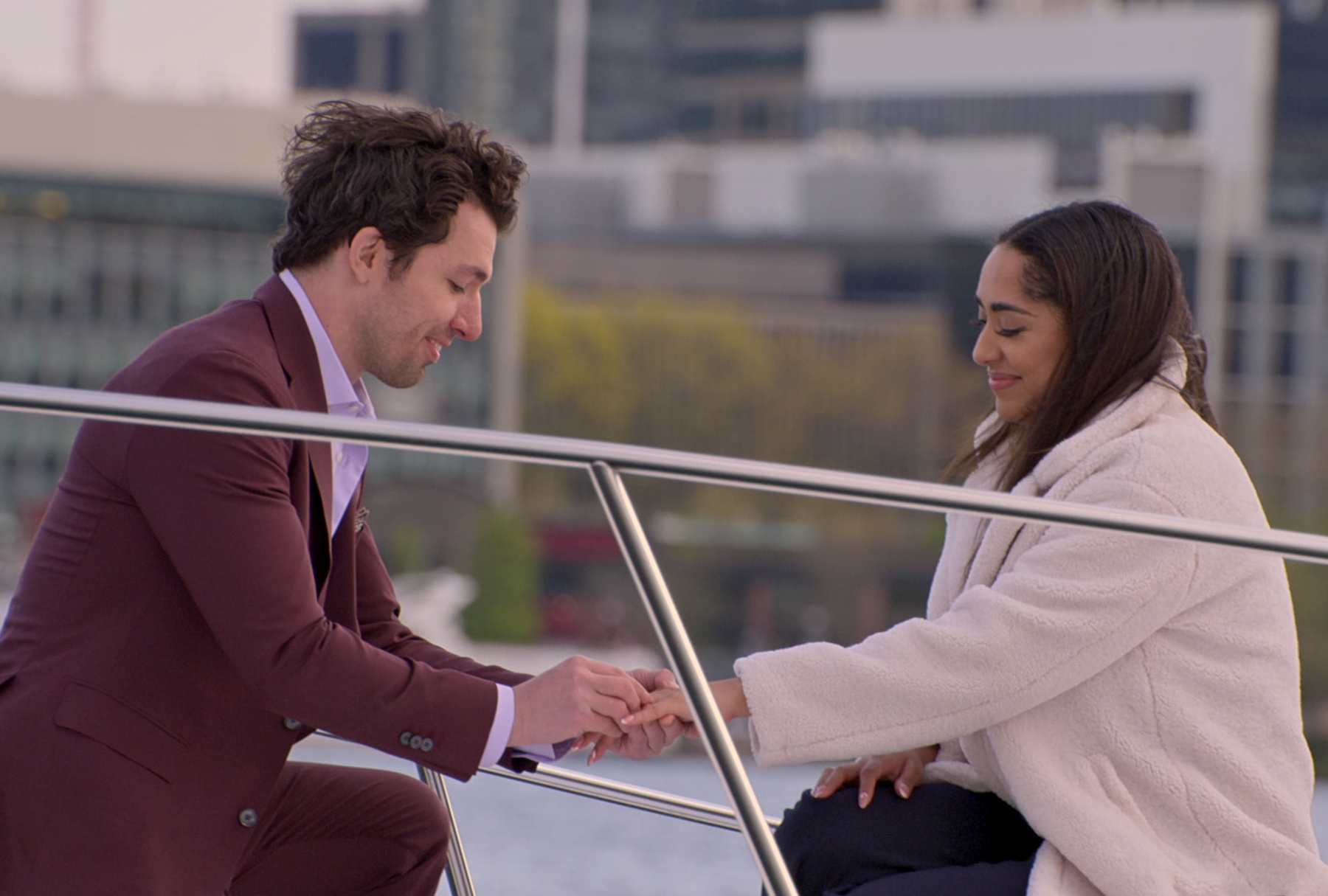 Zack proposes to Bliss on “Love Is Blind” (Netflix)Therapist and sexologist Joy Berkheimer, LMFT, pointed out to me that the concept of falling in love “sight unseen” is nothing new.
Zack proposes to Bliss on “Love Is Blind” (Netflix)Therapist and sexologist Joy Berkheimer, LMFT, pointed out to me that the concept of falling in love “sight unseen” is nothing new.
“We had an entire time period of AOL chatting — where there were no profile pictures — yet talking continued and many found themselves connecting with their future spouses,” Berkheimer said. “Not promoting it, but plenty of people have fallen in love with someone incarcerated, without photos, and writing them the entire time they are imprisoned.”
This is because Berkheimer says we fall in love with how people make us feel. My husband cautions that with love, there is always an element of “projection,” in that, which means a person is projecting feelings or emotions onto someone else and creating a fantasy of that person.
“I think it’s really easy to project on someone that you can’t see,” he says. “Like all the things that you want, but then when you face the messiness of the real world, those projections disappear — and you have to consider whether you really want to move from Portland to Seattle for someone.”
But does that mean seemingly healthily attached contestants like Brett and Tiffany are ready for marriage after three weeks? Both my husband and Manly said no.
“I’m very curious to see how these couples fight,” my husband says. “As a couples therapist I sometimes teach them how to fight constructively.”
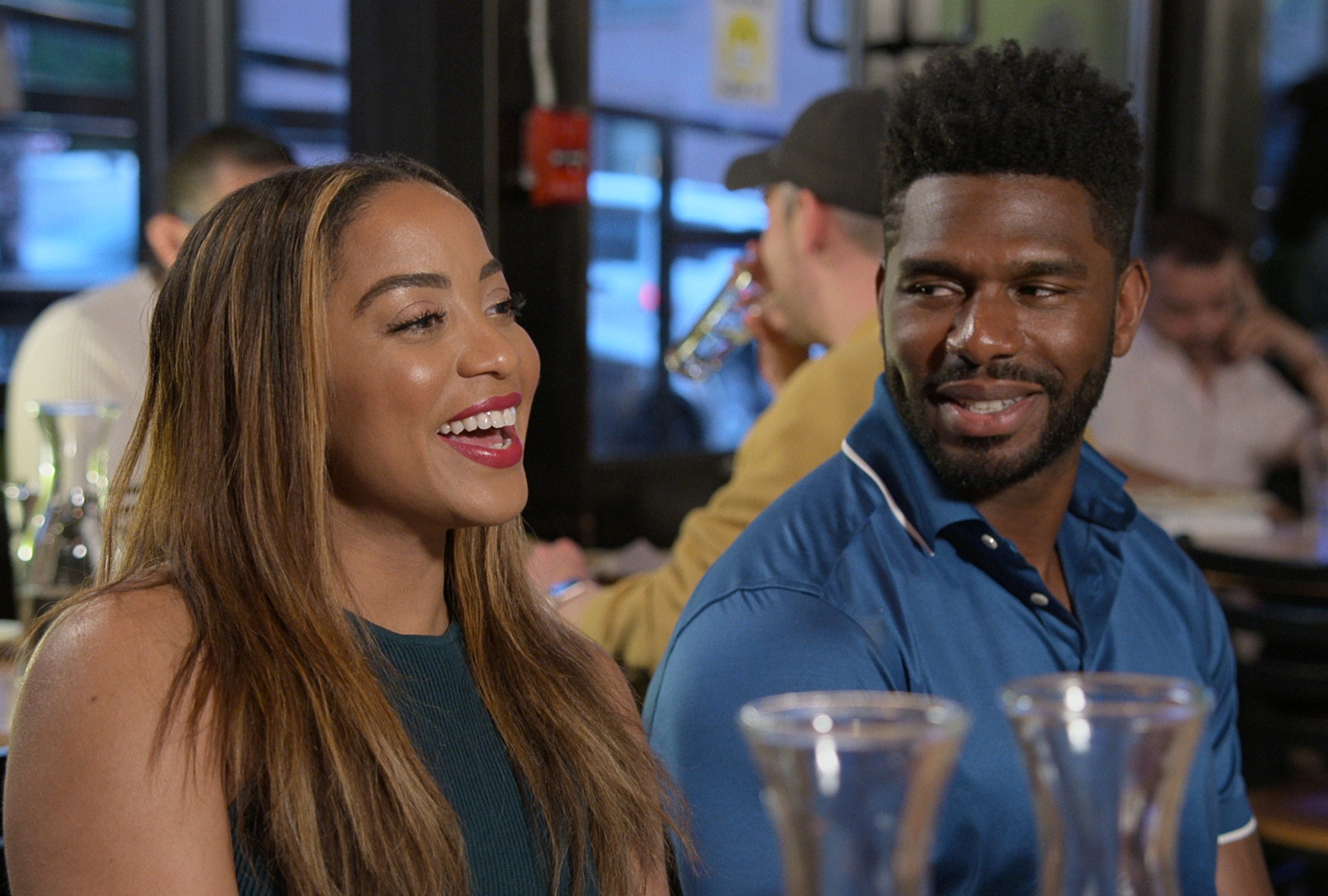 Tiffany and Brett on “Love Is Blind” (Netflix)Manly agreed that 20 days isn’t enough time for a couple to experience enough true ups and downs that might allow them to know whether their marriage will stand the test of life.
Tiffany and Brett on “Love Is Blind” (Netflix)Manly agreed that 20 days isn’t enough time for a couple to experience enough true ups and downs that might allow them to know whether their marriage will stand the test of life.
“We really need to know someone through all seasons of the year,” Manly said. “We do want to have a longer period of getting to know someone so that we understand how they behave in a wide variety of situations, how they respond to life, what their values are — and you simply can’t can’t find that out in a matter of months.”
Berkheimer said it’s also important to note that if contestants don’t end up being physically attracted to each other, that doesn’t mean their relationships are doomed.
“Physical attraction is just one piece of love and attraction.”
“Physical attraction is just one piece of love and attraction,” Berkheimer said. “Oftentimes, there are people who will connect with someone who they thought was ‘hot’ — and, after discussions, realize they had nothing in common and the spark is gone.”
Intimacy, Berkheimer said, “builds from feeling seen and safe with a person who shares your core values.”
I often ponder: would my husband and I have chosen each other in the pods? I don’t love small talk, and typically our dinner conversations are dissimilar from the flirting that happens in the pods. We’ve been through our fair share of trials and tribulations in the six years since we met, including the birth of our child. “I think so,” he always responds, reassuringly. But perhaps the truth is that it doesn’t actually matter whether we would have hit it off in the pods or not. Ultimately, it’s not about the fairy tale beginnings, but rather how we respond to messiness that takes flight once the cameras stop rolling.
